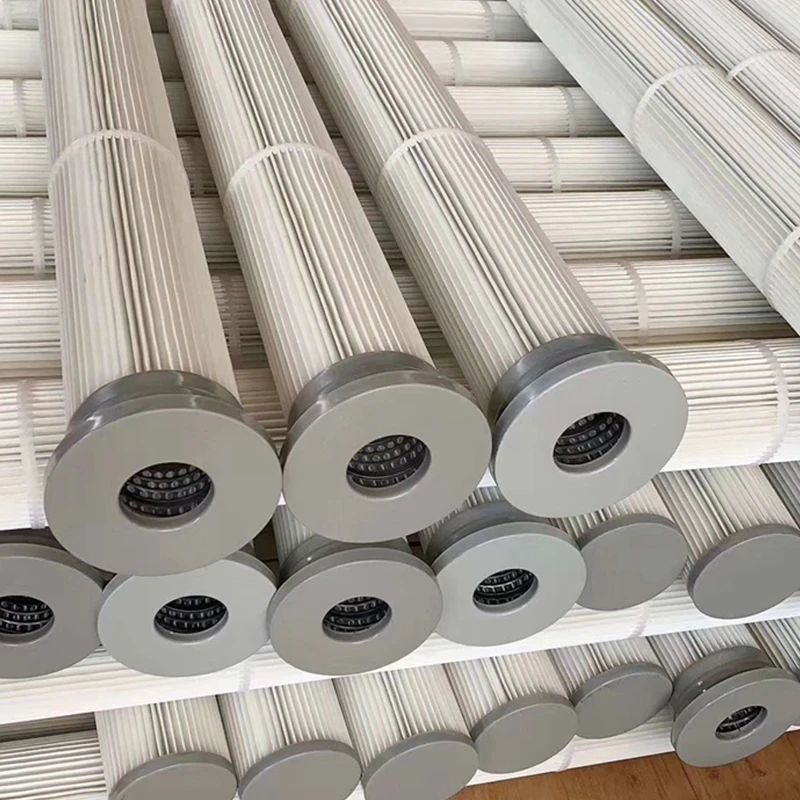 Tel:
+8615930870079
Tel:
+8615930870079
דצמ . 12, 2024 10:33 Back to list
gas turbine inlet filter
The Importance of Gas Turbine Inlet Filters
Gas turbines are widely used in various applications, including power generation, aviation, and industrial processes. The efficiency and longevity of these turbines are significantly influenced by the quality of the air entering them. This is where gas turbine inlet filters play a crucial role. These filters are designed to remove contaminants from the intake air, ensuring that the gas turbine operates efficiently and reliably.
The Role of Inlet Filters
Gas turbines require a large volume of air for combustion. This air is drawn from the environment and can contain various particulate matter such as dust, dirt, pollen, and even microbial contaminants. Without adequate filtration, these particles can enter the turbine system, causing damage to components such as compressors and combustion chambers. This not only affects the turbine's performance but can also lead to costly repairs and extended downtimes.
Inlet filters are typically the first line of defense against these contaminants. They work by trapping particles in the air as it passes through the filter media. Depending on the design and manufacturing process, these filters can capture a wide range of particle sizes, ensuring that only clean air enters the turbine.
Types of Inlet Filters
There are several types of inlet filters used in gas turbines, including dry filters, wet filters, and electrostatic filters
.1. Dry Filters These are the most common type of inlet filters. They utilize a fibrous material to capture particles through a combination of mechanical interception, inertial impaction, and diffusion. Dry filters are typically easy to replace and maintain.
2. Wet Filters These filters are used in environments where humidity levels are high, or where additional moisture removal is necessary. Wet filters work by using water or other liquid media to capture particles. While they can be very effective, they require more maintenance than dry filters.
gas turbine inlet filter

3. Electrostatic Filters These utilize an electric charge to attract and capture particles from the air. They are often more efficient than traditional filters and can handle higher volumes of air. However, they typically require a higher initial investment and more complex maintenance.
Benefits of Gas Turbine Inlet Filters
1. Increased Efficiency Clean air is essential for optimal combustion in gas turbines. By removing contaminants, inlet filters ensure that the air-to-fuel ratio remains optimal, increasing the overall efficiency of the turbine.
2. Extended Equipment Life By preventing abrasive particles from entering the turbine, inlet filters help reduce wear and tear on critical components. This extends the lifespan of the turbine and reduces the frequency of required maintenance.
3. Reduced Operational Costs While there is an upfront cost associated with purchasing and maintaining inlet filters, the long-term savings in reduced maintenance, repair costs, and increased fuel efficiency make them a wise investment.
4. Environmental Benefits Cleaner emissions are another significant benefit of using inlet filters. By promoting more complete combustion, these filters help reduce the production of harmful emissions, contributing to cleaner air quality.
Conclusion
Gas turbine inlet filters are a vital component in ensuring the reliable and efficient operation of gas turbines. By effectively removing contaminants from the intake air, they play a crucial role in protecting the turbine and enhancing its performance. The type of filter selected may vary based on specific environmental conditions and operational requirements, but the benefits remain consistent increased efficiency, extended equipment life, reduced operational costs, and a positive environmental impact. In an era where energy efficiency and sustainability are paramount, investing in high-quality gas turbine inlet filters is not just a practical decision; it is an essential one.
-
Nano Fiber Technology: Revolutionizing Cartridge Dust Collector FiltersNewsAug.06,2025
-
How Activated Carbon Air Cartridges Eliminate OdorsNewsAug.06,2025
-
Dust Filter Cartridge Handling Fine Particulate MatterNewsAug.06,2025
-
Cartridge Dust Collector Filter for Welding Fume ExtractionNewsAug.06,2025
-
Activated Carbon Filter Cartridge Effectiveness Against VOCsNewsAug.06,2025
-
Activated Carbon Air Filter Cartridge Benefits ExplainedNewsAug.06,2025

 Email:
Email:





